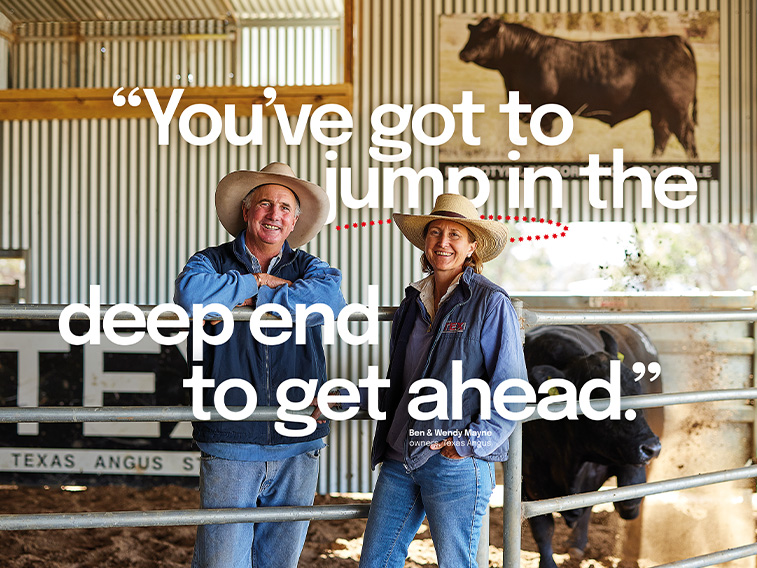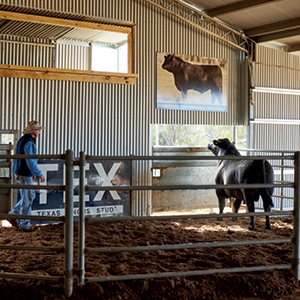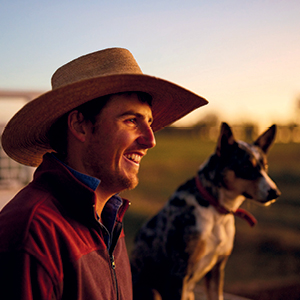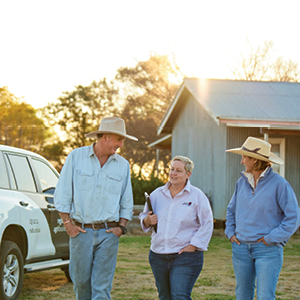The latest NAB Regional & Agribusiness webinar provides insights on the Australian & Global Economies, and a regional and rural property update. Watch the webinar here.


Two decades ago, cattle breeders Wendy and Ben Mayne went back to nature on their NSW stud. It’s been an award-winning decision.

According to owners Ben and Wendy Mayne, the 22 heifers that started the Texas Angus line in 1936 were special. So special that not a single new maternal line has been introduced for over 87 years.

“We try to breed bulls to what the buyer needs, but we also breed to a type,” Ben explains. “It’s about having cattle that perform.”
By concentrating on genetics, Ben adds, once Texas Angus cattle go to the backgrounding stage or the feedlot, they continue to grow and yield very well.
But it’s not all about genetics. Breeding is combined with sustainable and holistic land management on their stud at Warialda, NSW.
Two decades ago, the Maynes eliminated the use of chemical fertilisers. To replace them, they planted multiple species of perennial grasses and applied natural fertilisers, cultivating the microbial environment of their soil.
“People used to look at us like we were witch doctors,” Wendy laughs.

“We’re big believers that all your worms and grubs and bugs are the ones that fertilise your country,” Ben says, “and we’ve got plenty of them.”
The health of the Maynes’ soil translates into the health of the cattle – they can adapt more quickly into different environments with faster weight gains, adding to the profitability of clients’ herds.
“A lot of Texas Angus thrive in areas where Angus cattle generally don’t even survive,” Wendy explains. “Our bulls are known for their longevity and ability to adapt. We’re trying to interlink the whole sustainability process. It’s not only the soils – it’s the grasses, the crops and the genetics together.”
Ben agrees: “You’re only as good as your weakest link – the closer we can get to nature, the more efficient we can be.”

“Our NAB Agribusiness Banker Emma Grigg has been instrumental in helping our business grow sustainably,” Wendy says. “We can ring her anytime and she’ll always get back to us.”
“Wendy and Ben have put a lot of work into getting the business right,” Emma says. “If they’re looking at properties to buy or big financial decisions, I’ll chat with them about it.”
It’s a close working relationship that has even extended to a hands-on role. “Last year, Emma came and stayed with us,” Wendy says. “We had a two-day sale and she worked at it!”
© National Australia Bank Limited. ABN 12 004 044 937 AFSL and Australian Credit Licence 230686.